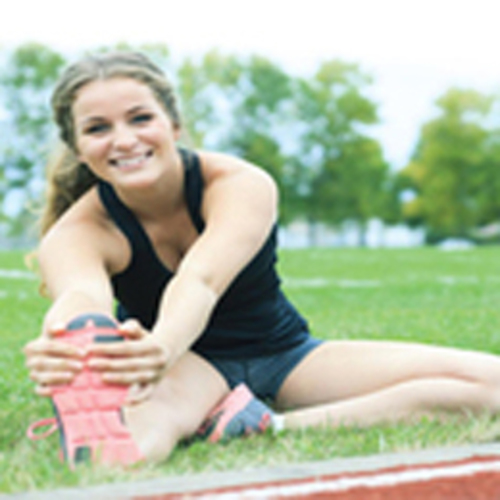Be Active. Stay Active
 ...From the pages of Suburban Family Magazine...
...From the pages of Suburban Family Magazine...
As summer kicks off, student athletes both at the high school and the collegiate level are already thinking about how they can stay in shape and train in the off-season.
One way that students are trying to keep their edge over the summer is by signing up with a gym. Whether they work one-on-one with a trainer, participate in small group classes or training or even just work out on their own—the key is to keep moving and remain active.
“I would say one of the biggest mistakes that student athletes make is they get home for the summer and they sit around,” says Sam Balducci, owner of Giant Fitness. “Ideally they would just keep up with all the exercises they were already doing for their sport but at their home gym. It obviously behooves them to pick up where they left off and continue with the same kind of training they were already doing.”
One of the biggest problems with becoming stagnant is that you “lose your edge,” says Balducci. More likely than not, a lot of your teammates are probably keeping up with their training and that could be the difference between who gets a starting position— and who sits on the bench. “Consistency is key with training,” adds Balducci. “You have to keep up with it.”
advertisement

Local Choices
There are a lot of options when it comes to selecting a gym or a fitness program right here in South Jersey. Matt Shields, owner of Power Train Sports and Fitness, says the facility is a sports performance training center where athletes of all ages come to get an edge over their competitors. The company originally only trained professional athletes but has since moved to training athletes of all ages.
“Power Train offers individualized programming for every athlete,” says Shields.
“There are a lot of variables that come into play when designing an individualized program. Some of the important ones to consider are exercise experience/training history, previous injuries, age, sport and if they’re in season or out of season.”
While Shields says it is important for athletes to train year round, the summer offers a chance to work on problem areas. “The summer is typically the off-season for high school and college athletes,” Shields says. “This is when they have time to heal those nagging injuries as well as erase muscular imbalances they’ve created during their competitive season.”
Chad Hallett, owner of Adrenaline Sports performance & Personal Training, says that student athletes should be training year round and that includes off-season, preseason, and of course, in-season training.
“Summer is the off-season for spring sports like baseball and lacrosse and is entering into the transition to pre-season training for fall sports like football and soccer,” Hallett explains. “At Adrenaline we recommend taking two weeks off after your season before starting your training program to give your body rest after a taxing season.”
But don’t get too comfortable with that break. Hallett says that training in the summer will prepare student athletes for the demands of their sport and help keep the edge.
“The old way of doing things was that when students come back to school they would go through a hell week, which results in kids getting sick or injured,” Hallett says. “But if you properly prepare in the summer by training, there would be no use for hell weeks to try and get athletes into shape in time for the season.”
A Sharper Edge
Of course, trying something outside of your typical sport could also help you improve. Isabella Pillows, a Moorestown Friends field hockey player, says that being a year-round field hockey goalie, she has found stretching and building a strong core has been vital to her success. Since starting Pilates, she has reduced pain in her back and legs and also eliminated ongoing ankle injuries she had been experiencing.
Laurie Weiner, PMA-CPT, ACE-CPT, owner of Pilates Plus a Restoration Studio, says that Pilates can help student athletes improve in their sport as well as
stay injury free. Pilates is a form of exercise that utilizes special apparatus to help improve strength, flexibility and posture. Pilates classes are said to develop core strength, muscle control, flexibility and coordination—all of which can obviously be helpful in sports.
“Our expertly trained teachers work with young dancers, ice skaters, soccer players, swimmers, field hockey players, runners and more,” says Weiner. “Each sport uses specific muscles. Pilates will help teach student athletes to use less of their major muscles and to work with smaller muscles. This will create stability in the core and joints.”
Just Keep Moving
No matter what you do this summer, the fitness experts say it’s important to keep moving. While it may be tempting, student athletes should try to avoid vegging out all summer long and instead get up and get moving. It doesn’t have to be all training, all summer long. You can fit some fun into the mix too. Even if that means some rounds of beach volleyball, surfing the waves or another fun summer activity, the best thing you can do for your health—and your sport—is to stay active.
Published (and copyrighted) in Suburban Family Magazine, Volume 8, Issue 4 (June, 2017).
For more info on Suburban Family Magazine, click here.
For information about advertising in Suburban Family Magazine, click here.
To find out where to pick up your copy of Suburban Family Magazine, click here.
Author: Lindsey Getz
Archives
More Articles






